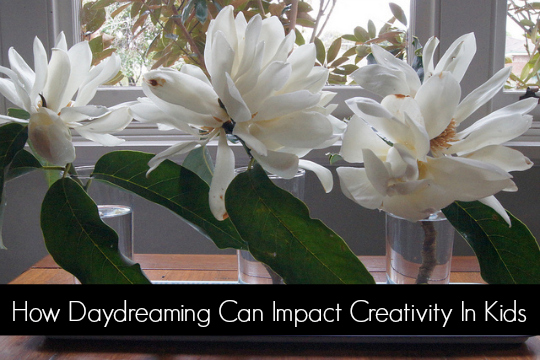A recent article from the Boston Globe detailed the research from scientists on the importance of daydreaming. The article Daydream Achiever I found interesting not only from the perspective of current education processes and my own children, but from my own childhood and even my current tendency to daydream. (EDIT: Unfortunately this article is now behind their paywall.)
In the article they talk about a new line of thought being taken towards day dreaming:
“Many scientists argue that daydreaming is a crucial tool for creativity, a thought process that allows the brain to make new associations and connections. Instead of focusing on our immediate surroundings – such as the message of a church sermon – the daydreaming mind is free to engage in abstract thought and imaginative ramblings.”
They use the example of Arthur Fry who whilst day dreaming through a sermon came up with the idea for sticky notes (post it notes). While I do not come up with such useful inventions, it is my moments where I let my mind wander when I will come up with new ideas for how to make things run smoothly for the family, think of solutions to issues that I may have with the children or for an idea for a post for my blog.
As a child, I was renown for often day dreaming and straying from task, lost in my own thoughts. My eldest child also has this tendency.
Teresa Belton, a research associate at East Anglia University in England looked at the relationship between creative thinking and daydreaming in children.
“After monitoring the daily schedule of the children for several months, Belton came to the conclusion that their lack of imagination was, at least in part, caused by the absence of “empty time,” or periods without any activity or sensory stimulation. She noticed that as soon as these children got even a little bit bored, they simply turned on the television: the moving images kept their minds occupied.”
With countless channels to watch or games to play on their consoles there isn’t time for the boredom to creep in and create an environment for day dreaming.
“The capacity to daydream enables a person to fill empty time with an enjoyable activity that can be carried on anywhere,” Belton says. “But that’s a skill that requires real practice. Too many kids never get the practice.”
I have posted previously on how I feel my kids need time to get bored, so they are inspired to create new games etc to keep themselves amused. This current research gives me just another reason not to fill the void for my children if they tell me they “have nothing to do”, but to allow them the time to practice their creativity skills.

